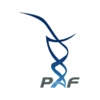Guofang Zhang, PhD, Duke University
“Propionyl-CoA and propionylcarnitine mediate cardiac complications in patients with propionic acidemia”
Update March 2023
Cardiac disease has a high prevalence among patients with propionic acidemia (PA). The pathological mechanism remains largely unknown, particularly due to the nature of chronic development. It is challenging to predict the cardiac diseases development in PA patients simply by the PCC mutations, propionyl-CoA carboxylase (PCC) enzyme activity or acute metabolic changes in plasma or urine because no strong correlation between cardiac phenotype (severity of disease) and genotype, metabolic decompensations or residual enzyme activity has been observed from the clinical cases.
Fatty acids with various chain-lengths are major fuels for heart. Our previous data demonstrated that propionate rather than amino acids is a major source of cardiac propionyl-CoA. In addition, the deficiency of PCC reduces the hepatic disposal of microbiome-derived propionate and promotes odd-chain fatty acid synthesis, both of which impose metabolic stress on heart. Propionyl-CoA accumulation derived from propionate and odd-chain fatty acids could interrupt cardiac energy metabolism. The low ATP further inhibits propionyl-CoA carboxylation according to our recent ischemia study. The impaired energy metabolism and propionyl-CoA accumulation forms a vicious circle.
With a third-year grant support from PAF, we will collaborate with Drs Eva Richard Rodríguez and Lourdes R. Desviat from Universidad Autónoma de Madrid on how energy metabolism in PCCA- or PCCB- iPSC-cardiomyocytes derived from human patients is altered by stable isotope analysis, particularly under the stress of propionate and odd-chain fatty acids. Another Aim is to improve cardiac energy metabolism by targeting propionate and odd-chain fatty acid metabolism.
Update August 2020
Cardiac disease is one of complications often associated with propionic acidemia (PA). Understanding the pathological mechanism is essential to prevent the development of complication. Our previous research has shown that propionyl-CoA accumulation inhibits the metabolism of fatty acid which is a major fuel for cardiac energy. The loss of fuel switch flexibility could interfere with cardiac energy metabolism and potentially develop cardiac complications particularly under various stresses. Our research was funded by PAF to investigate the pathological mechanism of cardiomyopathy associated with PA in 2019. In the year 1 of PAF award, we started to map out the metabolic source of propionyl-CoA in heart. Surprisingly, the amino acids (isoleucine, threonine, methionine, valine) and protein which are known to be substrates of propionyl-CoA have negligible contribution to propionyl-CoA production in heart. However, our data does not exclude the possibility that these amino acids substantially contribute to propionyl-CoA production in other organs, like liver. Circulating propionate is a major source of cardiac propionyl-CoA. It also fits the observation that heart prefers fatty acids including short-chain fatty acids as energy substrates. More than 99% propionate originating from microbiome is efficiently removed/metabolized at its first pass through liver in healthy rodents. Therefore, circulating propionate maintains at very low level after liver. The deficiency of PCC attenuates hepatic ability of disposing propionate and increases circulating propionate level, which exacerbates propionyl-CoA accumulation in heart. Our results show the “metabolic filtering” role of liver in maintaining efficient cardiac energy metabolism.
In order to understand the pathological mechanism of cardiac complication associated with PA, a PA-mediated cardiac complication model is essential. In year 2 of PAF award, we will first develop and confirm a mouse model with cardiac complication before pathological mechanism study. With the collaboration with Dr. Michael Barry, we will characterize cardiac function and metabolic phenotype of Pcca-/-(A138T) mouse that is a PA animal model created by Dr. Michael Barry. We will induce cardiac complication with Pcca-/-(A138T) mice by diets or stresses if it is necessary. After that, we will examine how cardiac energy metabolism is disturbed using stable isotope-based metabolic flux and RNA-Seq approaches. Furthermore, we will further investigate how propionylcarnitine expansion in the heart could deplete cardiac acetylcarnitine, acetyl-CoA buffer, and affects cardiac acute energy demanding. The long-term goal of our research is to find a therapeutic target on cardiac propionyl-CoA metabolism to mitigate cardiac complication associated with PA.
